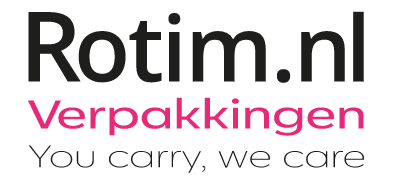
Many of us love the glitz and glam that comes with Eurovision. But did you know Eurovision had a large role in shaping the Europe we know today?
A Means of European Integration
Following the end of World War II, many initiatives to unite Europe through political and economic integration commenced. However, scholars such as Ben Wellings and Julie Kalman argue that Eurovision should also be credited as a means of European Integration as it has helped to create and sustain a pan-European cultural identity.
The first Eurovision Song Contest was held in May of 1956 in Switzerland, only ten years after the end of the Second World War. The contest was introduced by Marcel Bezençon of the European Broadcasting Union (EBU), who sought to further unite Europe through music. As put by a spokesman of the European Broadcasting Union “The core values of the Eurovision Song Contest are to celebrate broadcasters from different nations coming together through music and supporting quality public service broadcasting.”
The Reinforcement of European Values and Pan-European Identity
Eurovision is known to be camp, flamboyant but most importantly, tolerant.
Since its creation in 1956, the Eurovision Song Contest has continuously pushed for a more progressive Europe. This can be seen through themes such as ‘building bridges’, ‘come together’ and ‘celebrate diversity’. The purpose of these themes is to promote tolerance, freedom, diversity, and inclusion. Furthermore, there are rules set in place to emphasise these values: “The participating broadcasters shall at all times respect the ESC Values and shall ensure that no contestant, delegation or country is discriminated against and/or ridiculed in any manner”. Such rules have allowed Eurovision to become a safe space for artists, particularly those who are part of the LGBTQIA+ community, to express themselves without ratifications. Additionally, Eurovision has created a pan-European identity through these values and through equality for each participant.
Each contestant is given equal time, status, consideration, and votes- something that does not often happen at European level. Additionally, the EBU even penalised national broadcasters who interrupt performances or tamper with voting.
Balancing pan-European Identity with National Pride
The Eurovision Song Contest allows national pride to shine alongside European pride. Although the Eurovision Song Contest is technically a contest between broadcasters as national broadcasters select the artists, Eurovision has become a contest between countries. Some contestants chose to showcase their cultures by wearing traditional outfits, wearing their flags, incorporating ethnic elements, and to a lesser extent, singing in their native languages. The Eurovision Song Contest was also the first institution of integration to unite Eastern and Western Europe by allowing Eastern European countries to participate in 1993 (ten years before the Eastern expansion of the European Union). This allowed Eastern European countries the opportunity to showcase their cultural and artistic identity to the rest of Europe.
What about Politics?
The official rules of the contest bans “lyrics, speeches and gestures that are political in nature or endorse organisations, institutions or political causes.” Whilst most Eurovision fans would argue that politics can facilitate change, the EBU disagrees. In the past, countries have been disqualified for performing songs with obvious political undertones. In 2021, Belarus was disqualified for selecting a song that was blatantly about the Belarusian protests. Yet, singers such as Ukraine’s Jamala have been successful despite their entries having subtle political undertones. The EBU has also penalised contestants for taking sides in political causes, conflicts and wars. The EBU seems to think that this ban on obvious politics can help integration by preventing disagreements between nations.
So whether you think Eurovision is legendary or just downright tacky, the truth is Eurovision has helped create Europe as we know it. It has united European nations and given each participating country the opportunity to shine a light on their culture all whilst upholding a pan-European cultural identity. Though one question still stands aside which is whether it is really the neutrality of the Eurovison song contest on politics and its celebration of Europe´s broad cultural diversity which makes it so appealing for a greater audience. It might be something you may also want to reflect on.










